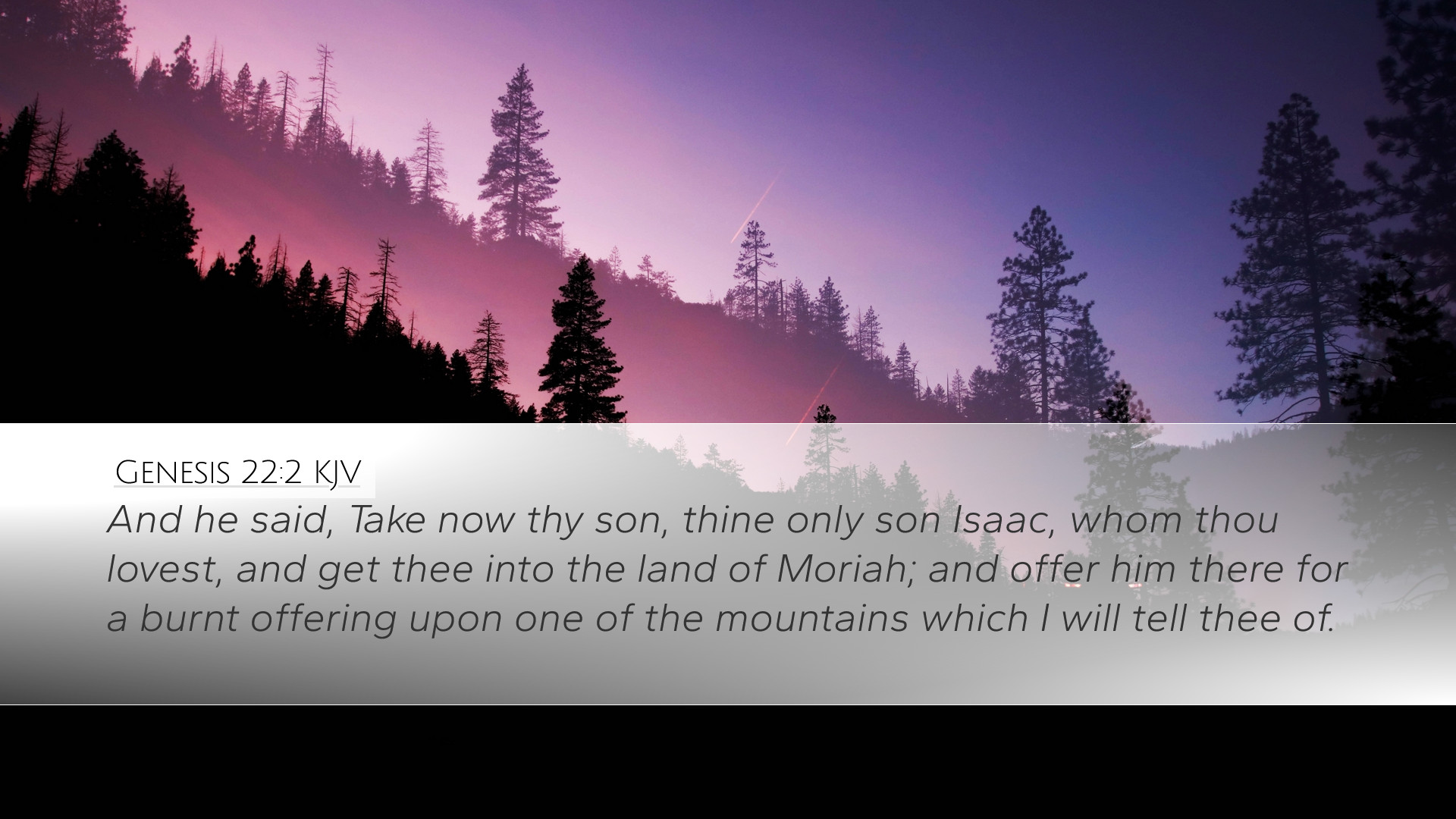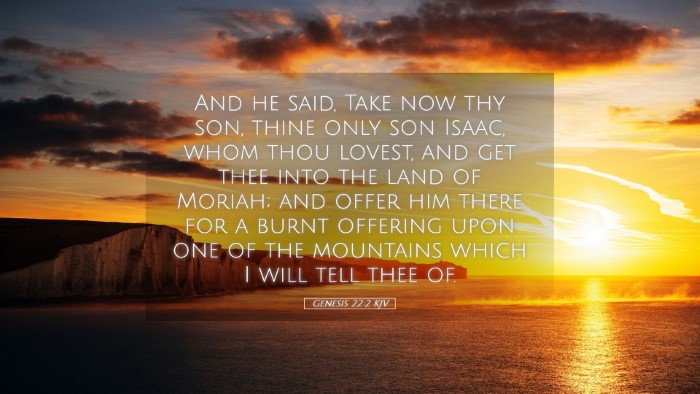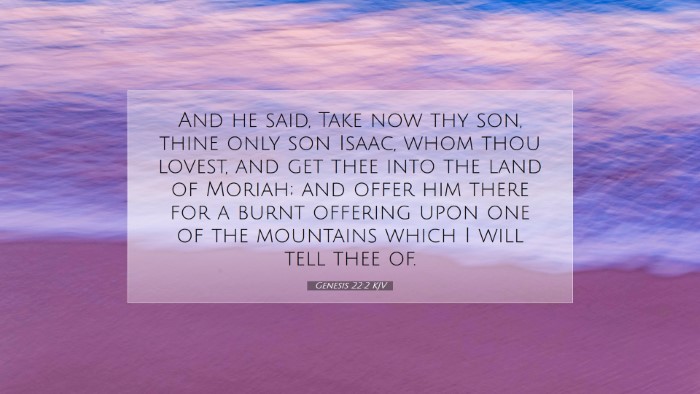Commentary on Genesis 22:2
Verse Reference: Genesis 22:2
“And he said, Take now thy son, thine only son Isaac, whom thou lovest, and get thee into the land of Moriah; and offer him there for a burnt offering upon one of the mountains which I will tell thee of.”
Introduction
This verse marks the pivotal moment in the narrative of Abraham's faith and obedience. It is essential to understand the weight of God's command and its implications in the broader biblical context. Abraham's willingness to sacrifice Isaac is not only a test of faith but also foreshadows profound theological truths found in the Gospel.
Contextual Analysis
In the narrative leading up to Genesis 22, the covenant between God and Abraham is established, with Isaac being the miraculous fulfillment of God's promise. The command to sacrifice Isaac serves as a profound test of Abraham's loyalty and trust in God. This event takes place in a unique geographical context, the land of Moriah, which holds significant future implications as the location of the temple.
Theological Insights
The Test of Faith
Matthew Henry comments on the nature of this divine test, noting that God often tries the faith of his people through difficult commands. The crucial aspect of this test is not merely the act itself, but Abraham's response exemplifying total obedience. Abraham's readiness to comply with God's command signifies a deep and unwavering faith.
Divine Providence
Albert Barnes emphasizes the theme of divine providence in this verse. Abraham is instructed to sacrifice Isaac, whom he loves intensely. This underscores the paradox of love intertwined with obedience to God's will. The love Abraham has for Isaac contrasts sharply with the command to sacrifice him, drawing attention to the sovereign plan that God has in the unfolding narrative of redemption.
Exegesis of Key Elements
“Thy Son, Thine Only Son”
Adam Clarke expounds on the terms used in God's command, particularly “thine only son.” This phrase reverberates with significance as it highlights not just Isaac's status, but also the unique relationship and covenantal promise granted to Abraham through him. The emotional toll on Abraham is palpable, reflecting the sacrificial nature of faith that requires relinquishing what is most cherished.
“Whom Thou Lovest”
The emotional dimension of this command is further explored by Matthew Henry, who points out that genuine faith often involves difficult choices. The love Abraham feels for Isaac amplifies the weight of the demand, reminding readers that faith may demand the sacrifice of our most valued possessions or relationships for the sake of obedience to God.
The Land of Moriah
The geographical setting, Moriah, carries profound significance as it is later identified with the temple site in Jerusalem. Albert Barnes notes that this foreshadows the location of future sacrificial systems and ultimately, the sacrifice of Christ. This direct link provides a theological bridge connecting Abraham’s faith to the overarching redemptive narrative in Scripture.
Applications for Modern Believers
Faith and Obedience
This narrative challenges modern believers to consider the depth of their own faith. Just as Abraham faced a significant trial, Christians today are often faced with demanding calls to faith that require relinquishing personal desires and accepting God’s will. This verse serves as a catalyst for introspection regarding personal sacrifices made in following God's call.
The Cost of Discipleship
In light of New Testament teachings, Genesis 22:2 foreshadows the concept of discipleship and the cost it entails. Jesus speaks of taking up one’s cross (Luke 9:23), which parallels Abraham’s willingness to bear the burden of obedience regardless of personal cost. The sacrificial aspect of discipleship remains a central theme for followers of Christ today.
Conclusion
Genesis 22:2 offers profound insights into the nature of faith, obedience, and divine provision. The complexities surrounding Abraham's command to sacrifice Isaac resonate deeply with themes of love, sacrifice, and the overarching narrative of redemption found throughout Scripture. By reflecting on this passage, pastors, students, and scholars are encouraged to explore the rich theological truths that emerge from the intersection of faithfulness and divine calling.


